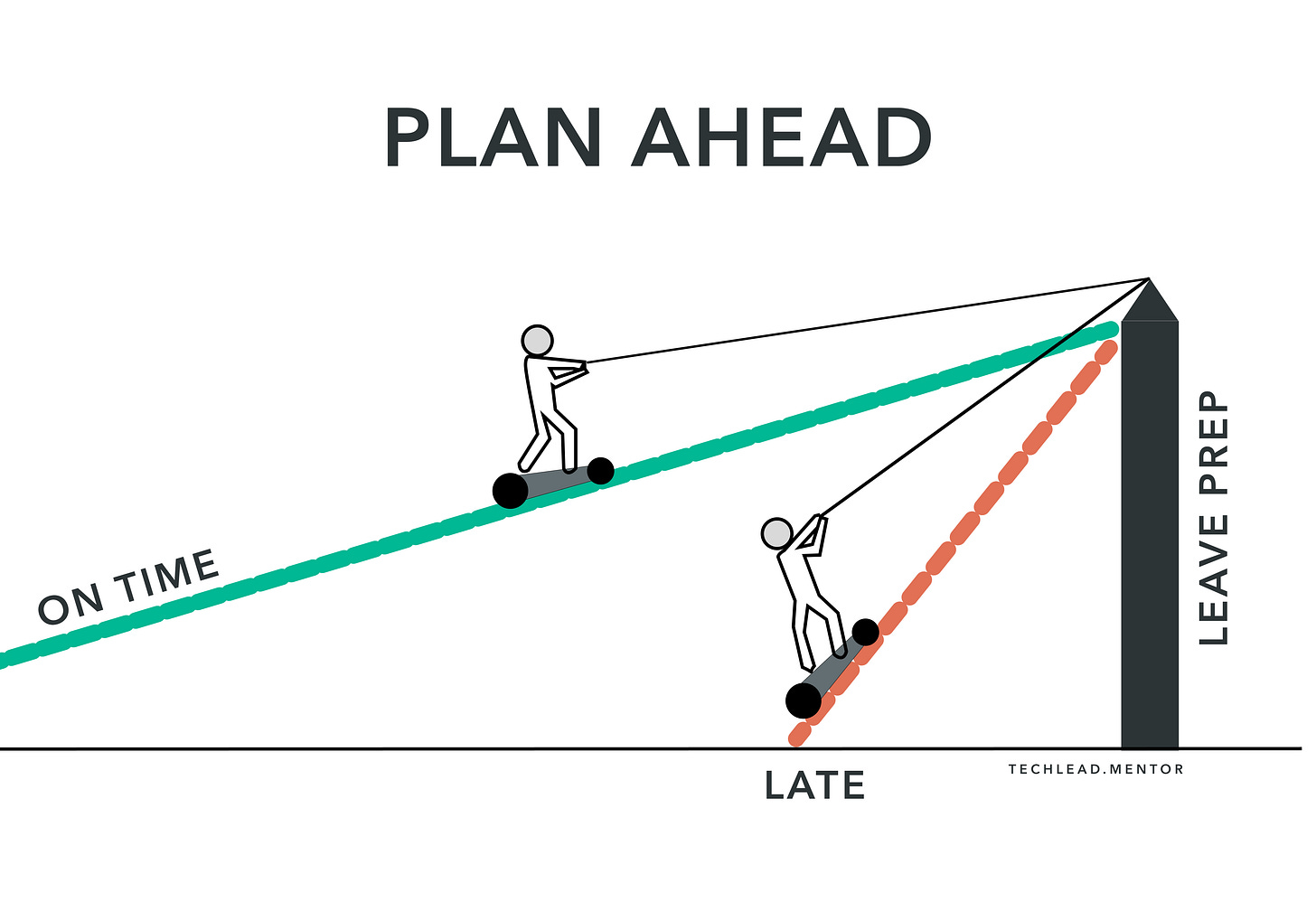How To Prepare For Leave Without Over-Burdening Your Team
Tips to prepare your team before your vacation.
We all take planned leaves from work from time to time. The most important thing to do when you hand off your work is to prepare your team to handle surprises!
Imagine person X rolls out a feature and it appears stable. They go on a break, and then the feature becomes buggy. Their team becomes upset, and when they discover a large amount of tech debt, they become even more upset.
When person X returns, they remind the team of their feature document and how it captures "planned work" and "known reliability gaps". Though most of the team was unaware of it. Person X realizes that they hadn't communicated their hand-off plan well.
People hate it when they need to pick up other people's unexpected work. But, they are happy to take on more work when it is planned. In my experience, the issue is always poor expectation management.
I was on paternity leave for 1 month in February and then for 3 months from September last year. (My daughter turns 1 year old today!) I had to hand off my work, ensure the smooth functioning of projects, and prepare my team to deal with surprises. So, today I'm sharing tips on how I managed that.
📝 1. Plan
Plan well in advance. You need to have clarity on what you can and cannot accomplish before the break.
Prioritize difficult problems upfront, so that your substitute does not need to re-engineer things.
Don’t cram in new tasks just before the break. Starting things you can’t finish can be worse than not starting at all. Instead, focus on the hand-off.
Do you enjoy reading my articles? Got a topic request?
Just reply to this email and let me know. I will reply back!
🚫📄 2. Document “what can go wrong”
Hand-off meetings and thorough documents are great and a must-have. However, I view "what can go wrong" as the necessary pillar for a sane vacation. Project documents already cover a wide range of disaster scenarios and the next steps to take.
Additionally, I remind my substitute about:
Subtle landmines in features that can be a time sink to manage
Off the record tricks to mitigate issues
Tricks to work with difficult stakeholders
🤝 3. Have a clear Point of Contact
Pick a person for your project who will take over. A common mistake is to expect someone to “step up” in your absence. That never happens.
Do:
Spend time with this person and help them get up to speed.
Discuss the time commitment needed. When this is not communicated, the substitute has to shuffle priorities last minute, which can be annoying.
Introduce them to the stakeholders.
If you have multiple ongoing projects, ensure each of those has a decided POC (it's okay if it's the same person).
💬 4. Communicate
Broadcast your leave plans well in advance and also repeat them verbally during your meetings.
Remind people about your break during planning.
I have also used my leave as an excuse to expedite discussions on critical topics. Remember, don’t leave difficult work for your substitute.
💳📈 5. Leaving behind too much Tech debt
Don't accumulate a lot of tech debt while trying to complete many difficult tasks.
It's okay if you don't finish everything, but don't surprise the team with tech debt.
We tend to judge our own tech debt less critically than others'. So, it's important to make your substitute comfortable with what you're leaving behind for them.
Lastly, when you are out, stay away. Let the team deal with it. If you really want to be available then do so for your substitute only. During my break, I did unmute notifications for my substitutes in case they needed me, but they hardly did.
🎤 Shoutout
How to grow from a mid-level to senior Data Engineer by Gregor Ojstersek & SeattleDataGuy
Many of you have asked me, how I convert my ideas to images. I took this paid course by Janis Ozolins that helped me learn the tricks to express my ideas visually.
If you enjoyed this article then hit the ❤️ button. It really helps!
If you think someone else will benefit from this, then make sure to 🔁 share this post.





Nice summary. 2 points that I think are important:
1. Use this opportunity to give a valuable experience to someone. Don’t always pick the easiest choice, maybe someone else can take it and use the chance to grow.
2. After doing all of the above, make sure to keep your manager in the loop. Things can change in your absence, and you’ll never foresee everything. Having them prepared will save a lot of headache for everyone.
Good planning and preparation sets the path to success.
Great points, Raviraj! 🎯